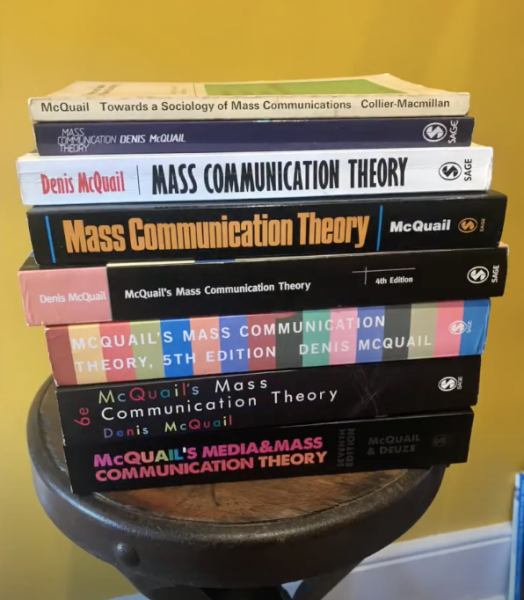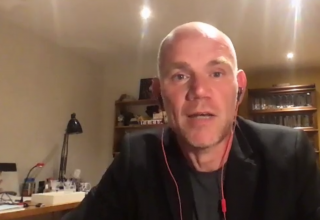
For Greenlee School graduate students, their class textbook was brought to life when Dr. Mark Deuze visited the program’s communication theory course earlier this month. Deuze, professor of media studies at the University of Amsterdam, joined Dr. Daniela Dimitrova’s Theories of Mass Communication course by Zoom. He shared wisdom from writing the latest edition of “McQuail’s Media and Mass Communication Theory” – a seminal textbook in the discipline that is used for the class.
“This was a fantastic opportunity for Greenlee graduate students to learn more about the new edition of the book, which is considered a foundational text in the field of media studies and communication research,” said Dimitrova. “It was such a treat to hear directly from the author about how the 2020 edition came about.”
Beyond this book, Deuze has authored more than 50 peer-reviewed academic articles and seven books. His latest book (with collaborator Tamara Witschge) “Beyond Journalism” examines how disruption in the news industry’s business model has reshaped how newsworkers integrate new cultures into their production routines.
Deuze is not only an established scholar in the communication field globally, but also serves as graduate director in the Media Studies department at the University of Amsterdam — so he has in-depth understanding of graduate student interests and needs. His talk also emphasized that his professional background as a journalist is also crucial for his scholarly work.
Greenlee graduate program participants, including second-year student Sarah Muller, saw connections between Deuze’s academic scholarship and her own work in the field of journalism.
“Dr. Deuze talked about the ‘disruption’ of media production,” Muller said. “He used the example of when a person goes home and turns on a computer. They are already creating media. He followed up by saying that content is an obscure concept and a bit too generic because almost everything can be content.”
First-year Greenlee graduate student Mia Zhang noted connections between Deuze’s research and the world of media consumption.

“I think Dr. Deuze is so right when saying everyone is the media creator nowadays,” Zhang said. “When we click, comment and post on social media, we are actively or passively creating new content or pushing content to other users. In an age where anyone can post, does news still have its original authority?”
Beyond Deuze’s work as a mass communications scholar, students left class inspired by his abilities as a mentor.
“I very much enjoyed learning from and interacting with Dr. Deuze,” said graduate student Celine Briggs. “In my mind, I see book authors as this elite class of researchers. Dr. Deuze seems very down to earth and was not afraid to share his experiences and understanding of media theory.”
